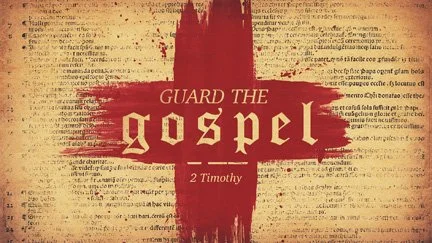Have you ever noticed how God just seems to have this thing about finding and calling and making use of the most absolute, utter, complete fools, nuts, kooks, and clowns? God does! He really does! Go back in time as far as you want to go, and you’ll see that this is nothing new. God has always done this. I don’t know why. He just does. God loves the clowns for some reason. And somehow, God always makes things turn out right in the end by choosing and using clowns.
Think with me for a moment about some of the ancient heroes of the faith. How about Noah, for instance. You have to admire the man. When God called, Noah answered. And he obeyed. Noah built this huge boat out in his backyard, just like God told him to do, to God’s exact specifications, in order to get ready for a flood that God had told him was coming. It was an admirable feat, to be sure. But consider this: Noah lived in the middle of the desert. There wasn’t enough water out there to float a canoe, and here Noah was building a Pacific Princess for animals! And then, how about that parade of animals he marched in there? Who do you think got stuck cleaning up that mess in the bottom of the ark? Can you just imagine what Noah’s neighbors thought and said about him? He was a joke, a fool, the laughingstock of the neighborhood, a clown – but he was God’s clown. And he definitely had the last laugh.
Noah is only one in a long line of Biblical clowns. How about Abraham, picking up and leaving home at a considerable age, wandering around wherever God told him to go, and becoming a father at just about the time most of his friends were retiring to Florida to spend their kids’ inheritance? And then there was David, the shepherd-boy. There he stood on the battlefield, like a toy soldier, a poorly equipped midget in oversized armor, standing against a giant with only a slingshot for a weapon. And how about Jonah, who was told to get up and go to Nineveh, but instead ended up about as low as you can go in the belly of a big fish? But he still managed to arrive in Nineveh just in time to save the city, preaching with seaweed in his hair and the biggest fish story ever told. Then there was Hosea the prophet, who married a lady of the evening and loved her no matter what, looking more like a doormat than a man of God, letting her get away with adultery when it was his legal right to have her stoned to death for betraying him.
Even Jesus looked like a clown to some of the people who watched him. He hung around with all the wrong people, for one thing, tax collectors, Zealots, and hookers, and he called them all children of God. He stood before the awesome edifice of the Temple, with its golden gates and marble walls and said that it would all fall down and then be rebuilt in just three days. Jesus was a homeless wanderer who was dependent on wealthy women to pay the expenses for his mission trips. He told funny stories and made the Pharisees look like uneducated idiots in the process. Jesus loved to spend time with children. He dared to call himself the Son of God. And all of his endeavors eventually got him crucified, the death of a clown. But then Jesus had the last laugh on Easter morning, when God raised him from the dead.
What is it that turned clowns into conquerors, turned fools into fanatics for Jesus? How did God do it? What made the difference?
I think the key is that these clowns knew for sure, without a shadow of a doubt, that they were God’s clowns. They felt God at work in them and through them, enabling them to be more than they were, to do more than they could do, to accomplish amazing things in the name of God. They knew that, no matter what, God was on their side. He had called and commissioned them, and come hell or high water or Calvary, God’s purposes would be worked out through them. They were convinced that God knew them and loved them, that God could use them, warts and all.
One of my favorite examples of God’s clowns is Simon Peter. I picture him as a big, burly, loud, wild-haired man with a gleam in his eye and a bounce in his step. He was someone not afraid of hard work, someone who just jumped into whatever he was doing with energy and enthusiasm. Peter was one of the inner circle of Jesus, along with James and John, a great honor indeed. But Peter also had some significant flaws. He never knew when to keep his mouth shut. He just said whatever came into his head, just blurted it out whether or not it was relevant. You might remember when Peter was on the mount of Transfiguration with Jesus and saw the amazing appearance of Moses and Elijah. Peter couldn’t resist offering to pitch a tent and stay up there forever. Peter may not have been well educated, and sometimes he wasn’t all that perceptive or sensitive to what was really going on around him. But God still did great things through Peter.
One of my favorite books was written by Grady Nutt, a Christian comedian who often appeared on the TV show Hee Haw. In his book, he wrote about:
I have for some time seen Simon as the stumbling, bumbling, fumbling Barney Fife, deputy of Mayberry, USA. His relationship with Jesus Christ reminds me of Barney’s relationship with Andy … of all the people in town only Andy really saw the worth in Barney … We have always heard that Peter was a coward denying that he ever knew Jesus … He has been branded a coward and a traitor through the centuries for his statements that he did not know Jesus … But remember resurrection morning, Easter I – Jesus tells the women to go tell that the disciples that he risen … and Simon! That was the gospel of acceptance and understanding … That was when Simon started to live with reckless courage, zest, meaning, understanding.
Think about that for a moment. And think about the fact that when Peter preached his first sermon, not long after Jesus ascended into heaven, it was so powerful that three thousand people decided to follow Christ.
That is the kind of thing that Paul was referring to when he wrote these words to the Christians in Corinth:
Consider your own call, brothers and sisters: not many of you were wise by human standards, not many were powerful, not many were of noble birth. But God chose what is foolish in the world to shame the wise; God chose what is weak in the world to shame the strong; God chose what is low and despised in the world, things that are not, to reduce to nothing things that are, so that no one might boast in the presence of God. He is the source of your life in Christ Jesus, who became for us wisdom from God, and righteousness and sanctification and redemption, in order that, as it is written, “Let the one who boasts, boast in the Lord.”
When God uses clowns, it is God’s way of demonstrating his own power and grace. God can use even you and me to do his will because of who God is, not because of who we are. We are the vessels, the tools, the instruments. And through us, God brings glory to himself. If God can work through clowns like us, it proves how great God is, not how great we are.
The early church – the church in Paul’s day – was made up mostly of poor people and slaves. They were seen as living tools, as things and not as persons. A slave could be discarded as easily as a rake or a hoe. A slave could be tortured or killed at the master’s whim. There was no such thing as marriage for a slave, and even a slave’s children belonged to the master. The gospel was an incredible, revolutionary message to these people. William Barclay wrote,
Christianity made people who were things into real men and women, more, into sons and daughters of God; it gave those who had no respect, their self-respect; it gave those who had no life, life eternal; it told men that, even if they did not matter to other men, they still mattered intensely to God. It told men who, in the eyes of the world were worthless, that, in the eyes of God, they were worth the death of his only Son.
The power of the gospel message gave these common people the courage to do uncommon things. They were used by God to spread the gospel throughout the Roman world, remaining true to Jesus Christ even in the face of barbarous persecution. They became martyrs for their faith, witnesses who were faithful to the very end. They may have appeared foolish to the world, and they were laughed at as clowns; but God did great things through them. The church exists today because of the clowns God has used over the centuries.
God still uses ordinary people, clowns, to do extraordinary things in his name and for his purposes. God uses you and God uses me. We don’t need to feel afraid or worthless or ineffective because of what we are not; God uses us because of what and who God is. We may sometimes look like clowns in the eyes of the people around us. But each and every one of us can make a difference for the kingdom of God. Through the Holy Spirit, God takes even clowns like us to reach people in his name, to ease the suffering of the down and out, to minister to the homeless and the hopeless, to carry the good news of Jesus Christ into our towns and our offices and our neighborhoods. God uses the clowns and brings glory to himself through our efforts. God can do great things through you. Just be available, and God will do the rest. Even when you think you look like a clown; you are God’s clown. And you are in good company.









